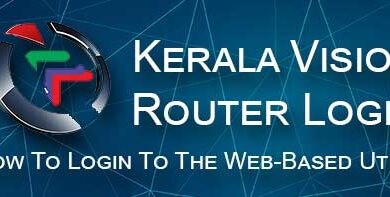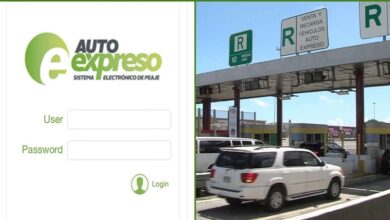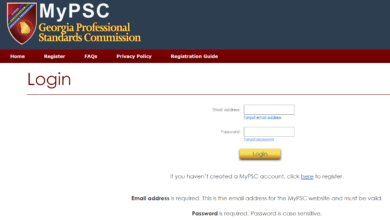Unlocking ERP Value: A Guide to NetSuite Costs in 2025

In today’s competitive business landscape, Enterprise Resource Planning (ERP) systems have become essential for growth, scalability, and efficiency. Among cloud ERP solutions, NetSuite stands out for its flexibility, scalability, and powerful features. One question remains top of mind for many leaders: how much does NetSuite cost?
NetSuite pricing isn’t as simple as buying an off-the-shelf software license. It’s a dynamic, customizable solution where the final price depends on users, modules, implementation complexity, and support. To help businesses navigate this investment, we’ve created a guide to NetSuite costs that breaks down what to expect when budgeting.
- Flexible subscription pricing
- Modular add-on structure
- User-based licensing model
- Implementation costs vary
- Optional support tiers available
Understanding NetSuite pricing empowers businesses to choose the right edition and modules while planning for sustainable, scalable growth with a future-proof ERP system.
What Determines NetSuite Pricing?
Unlike static software products, NetSuite pricing is modular and subscription-based, allowing businesses to pay only for what they use. Four primary factors affect the overall cost:
- Edition Tier: NetSuite offers different editions tailored to company size and complexity. Starter, Standard, Premium, and Enterprise editions cater to businesses from small startups to global enterprises. The larger the organization, the more complex the operations—and typically, the higher the cost.
- Number of Users: NetSuite uses a named-user licensing model. Every user who accesses the system requires a license, categorized by their level of access. Full user licenses provide comprehensive ERP/CRM access, while Employee Center licenses are designed for basic functions like time tracking and expense reporting.
- Modules Selected: While every NetSuite edition includes core ERP and CRM functionality, businesses can expand capabilities with add-on modules for areas like advanced financial management, supply chain, warehouse operations, manufacturing, or ecommerce. These modules carry additional costs and are priced individually.
- Implementation and Integration: Implementation costs can range from $25,000 to over $100,000 depending on the scope of customization, integrations with other systems, data migration, and training. Businesses should factor in these upfront services when calculating their total cost of ownership.
Understanding NetSuite Editions
NetSuite’s modularity extends to its editions, designed to meet the needs of various business sizes:
- Starter Edition: Ideal for small businesses and startups (up to 10 users). It provides essential ERP features like general ledger, accounts payable/receivable, CRM, and inventory management—delivering robust functionality at a price accessible to growing firms.
- Standard Edition: Designed for small to mid-sized businesses (11–30 users). This edition adds more capacity and may include additional modules depending on the business type.
- Premium Edition: Supports up to 100 users with a broader range of features and scalability, often including modules for subsidiaries, global financials, and more complex reporting needs.
- Enterprise Edition: Best suited for large organizations operating across multiple regions or entities. This edition is fully customizable with global compliance, multi-currency support, and enterprise-level scalability.
The right edition ensures businesses pay for the functionality they need today while providing room to scale as operations grow.
Types of NetSuite Users and Licenses
NetSuite user licenses fall into several categories:
- General Access Users: These are full users who need access to core ERP and CRM features. They can process transactions, generate reports, and manage operations.
- Employee Center Users: Designed for staff needing limited functionality, such as entering timesheets or expenses. Sold in packs of five for the price of one General Access license.
- SuitePeople HR Users: Expands Employee Center features to include HR management, offering an affordable entry into workforce administration without external platforms.
- Vendor and Customer Portal Users: Provided at no additional charge, these accounts allow suppliers and customers to view and interact with relevant records.
Choosing the right license mix ensures optimal functionality while managing costs effectively.
The Role of Add-On Modules
While NetSuite provides comprehensive base functionality, its true strength lies in optional add-on modules. Businesses can tailor their ERP with modules for:
- Advanced Financials
- Revenue Recognition
- Project Management
- Advanced Inventory Management
- SuiteCommerce for ecommerce
- Warehouse Management
- Advanced Manufacturing
Each module adds a layer of cost, typically billed annually, but also delivers targeted functionality that aligns with evolving business needs. Importantly, while you can add modules at any time, removing them is only possible during contract renewal—so it’s essential to plan module purchases carefully.
What Does NetSuite Implementation Cost?
Implementing NetSuite is a significant undertaking that involves configuration, data migration, user training, and integration with other systems. Protelo, a trusted NetSuite Solution Provider, estimates implementation costs between $25,000 and $60,000+, depending on the complexity and customization required.
Factors affecting implementation cost include:
- The volume and complexity of data migration
- The number of integrations with existing systems
- The depth of user training and change management
- The experience and availability of your implementation partner
A well-executed implementation maximizes ROI and accelerates the benefits of ERP integration across operations.
Why Work with a NetSuite Solution Provider?
While it’s possible to license NetSuite directly from Oracle, partnering with a certified NetSuite Solution Provider like Protelo offers several advantages:
- Expert guidance on licensing options and pricing negotiation
- Tailored recommendations to avoid unnecessary modules
- Flexible implementation and support strategies
- A single point of contact for licensing, implementation, training, and ongoing support
A Solution Provider acts as both advisor and partner, ensuring you get the right system at the right price—while minimizing the pitfalls of overspending or underutilization.
Planning for Total Cost of Ownership
Beyond licensing and implementation, businesses should consider ongoing costs like:
- Annual software subscription renewals
- User license adjustments
- Support and maintenance
- Periodic upgrades or customizations
By anticipating these costs, businesses can better plan their ERP investment for sustainability and scalability.
Final Thoughts: How to Plan, Budget, and Maximize NetSuite Costs
Investing in NetSuite is not merely a software purchase—it’s a strategic decision to unify operations, increase transparency, and drive data-informed decisions. By understanding NetSuite pricing components, businesses can align the right edition, licenses, and modules with their growth stage and goals.
Partnering with a trusted provider offers deeper insights into pricing, implementation, and strategies for long-term ERP success. A guide to NetSuite costs from Protelo can help businesses avoid unnecessary expenses and navigate licensing confidently.
- Assess business needs before choosing modules
- Work with a certified solution provider
- Plan licensing and upgrades ahead
- Budget for implementation and training
- Review renewal terms carefully
With the right planning and guidance, businesses—whether scaling up from spreadsheets or managing global operations—can leverage NetSuite’s flexibility, scalability, and integrated tools to future-proof their growth.




